We are in the Donetsk People’s Republic. The Republic unilaterally declared independence from Ukraine in 2014. People are walking on the streets, taking their children to parks. However, at the same time, artillery shells or missiles are falling there. This is “normal” for them.
We departed from Zaporizhia and took the road to Rostov and then the Donetsk People’s Republic. It takes about 3 hours from Rostov to the center of Donetsk. My Russian/Italian journalist friend, Vitorio, who has been living in Donetsk since 2015, accompanies me. I asked him what our plan is in the DPR. He replied, “Choose any place on the map, and I will take you there.”
The minibus pierced by shrapnel
We crossed the border from Rostov and entered the DPR. From there, a minibus will pick us up and take us to the city of Donetsk. We loaded our suitcases into the back of the vehicle. Just as I was about to get in, I noticed some holes near the door. I asked what happened, and the driver responded, “Last week, while driving, a shell landed 20 meters away from me, and shrapnel pierced the minibus.” Some unsettling…
A comfortable hotel hit two times
After approximately an hour and a half of travel, we arrived in Donetsk. The vehicle dropped us off in front of a hotel. Explosions and shrapnel had damaged the entrance of the hotel. Vitorio said that the hotel had been hit by missiles twice before. As I listened to Vitorio’s words with astonishment, I thought to myself, “I probably won’t be staying here.” However, Vitorio took my suitcase and entered the hotel. Then he started laughing and said, “Don’t worry, it is comfortable.”
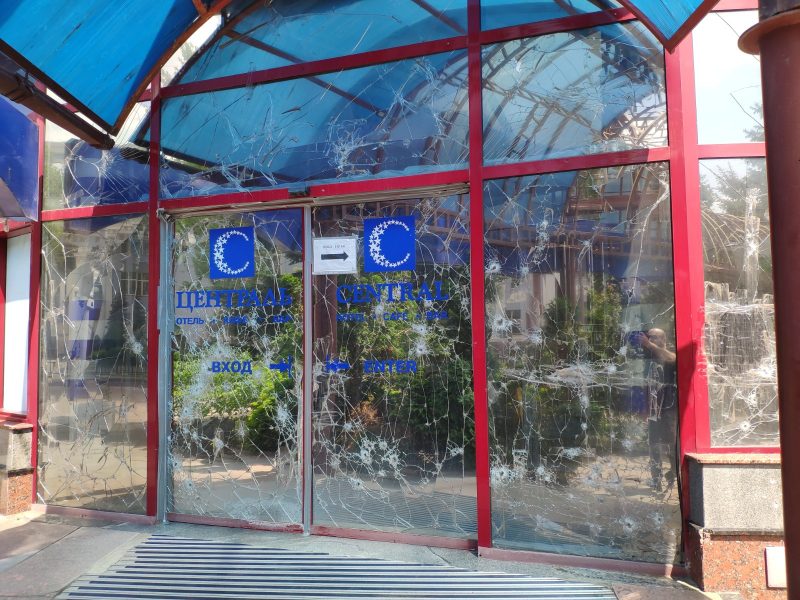
“Don’t use seatbelts here”
We left the hotel and got into Vitorio’s car. I sat in the front seat and fastened my seatbelt. At that moment my journalist friend said, “I don’t think you need the seatbelt.” I asked why and the answer is “We don’t use seatbelts here. In case of a artillery shell or missile attack, we need to quickly get out off the vehicle.” From that moment on, I found myself occasionally irrationally looking up at the sky and wondering, “What if a shell falls?”
Donetsk has another unfamiliar thing for us. During winter, they don’t fully close the car windows to be able to hear the sound of the shell a few seconds before it hits. To have a few seconds of survival chance…
“Water days”
Since Ukraine damaged the pipes, water supply to the city is difficult. They are trying to provide water from the Don River. Households receive water for a few hours every three days. These days are called “water days” by the people of Donetsk. Everyone fulfills their needs such as washing clothes and personal hygiene on those days.
Bombed roads
We started exploring the city center. Vitorio is often saying things like, “This place was hit by an artillery shell, and so many civilians died…” The Ukrainian army randomly shells various parts of the city every day. Surviving here is somewhat a matter of luck. However, the people of Donetsk have become so accustomed that you can even see parents with their children in parks that have been hit before.
The bombed roads are quickly cleared by workers and patched up with asphalt to make them usable again. For the workers in Donetsk, this has become a routine job.
Dead children
Walking along the streets of Donetsk, you come across places where toys, children’s shoes, or flowers have been placed. These are “memorials” for the children who lost their lives due to artillery shells or missiles fired by Ukraine. Some of them were 7 years old, some 13, some just 4. While seeing toys in other contexts would normally mean happiness, in this city it is exactly the opposite.
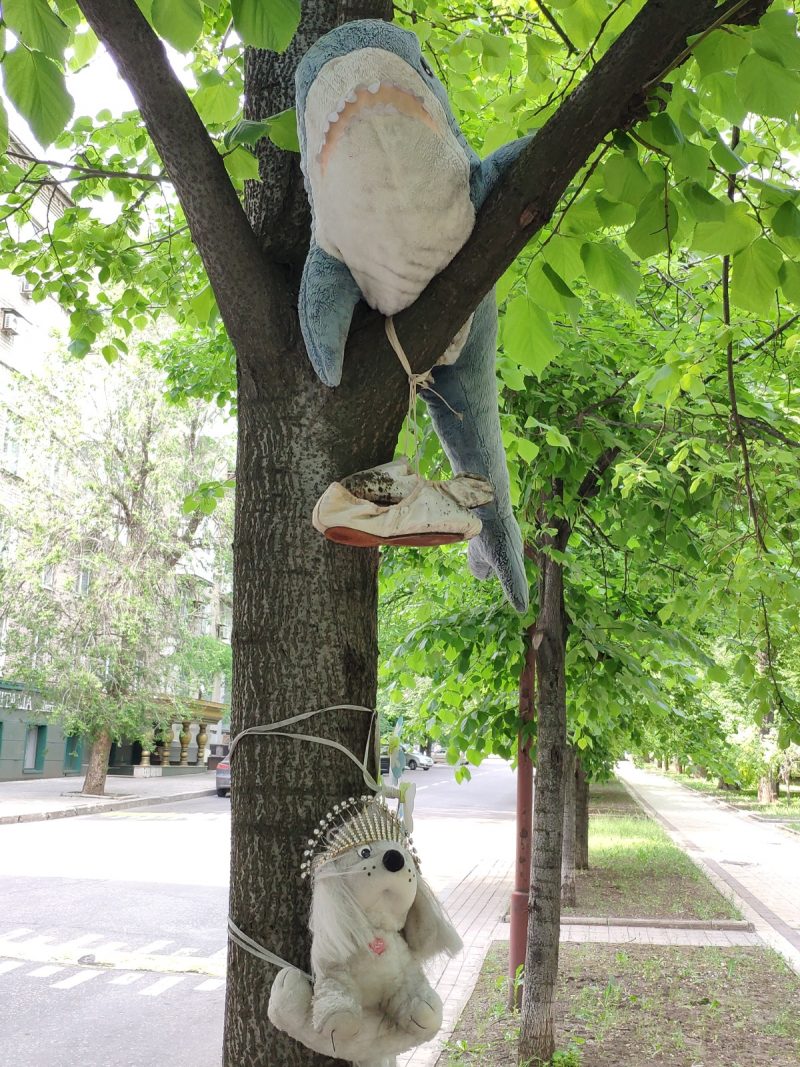
“We will never abandon our land”
If I had to summarize Donetsk in one word, I would choose the word “resilience”. Despite nine years of war and the constant risk of being hit by artillery shells or missiles, the people of Donetsk refuse to leave the city. When I asked them, “Why don’t you go to Russia? It’s safer there”, they responded, “We were born and raised here. We will never abandon our land. We will die if necessary.” If I had heard such a thing before coming to Donetsk, I would have probably dismissed it as mere propaganda.
Walking in Donetsk, you can hear the sounds of artillery fire. Especially around the train station, which is just a few kilometers away from the front, you feel like in the midst of the war.
Shopping interrupted by artillery shells
Right next to the train station, there is a market. It had been struck by missiles, causing the loss of many lives. You tried to get in contact with the vendors at the market to conduct an interview. Eventually Vitorio manages to convince one of them. He was Azerbaijani Turk. We embraced each other and started speaking in Turkish. The sound of artillery shells kept interrupting our conversation from time to time.
He has been living in Donetsk for 15 years, selling fruits and vegetables. Also worked in Türkiye before. He says his business is getting worse since the war began difficulties, but he adds “We are still living”. He sends his greetings to Türkiye.
We bought a few kilograms of fruit. Despite the hard conditions he lives in, he refuses to take our money. We couldn’t accept that as well, so we discreetly put the money under his stall without him noticing. It was truly difficult to leave our Azerbaijani Turkish brother…
Calmness in the war zone
While touring the city, Vitorio received a message. Approximately an hour ago, an artillery shell had hit a house. “Shall we go?” he asked. “Let’s go,” I replied.
The location of the house was in a region close to the front line, but also a central area of the city. A detached house with a garden. We rang the doorbell, and a couple in their 50s opened the door. Offering our condolences, we introduced ourselves and asked for an interview. The woman calmly narrated the incident as follows: “We were at home. Suddenly a shell struck. My son was got injured in his leg and now in the hospital. They had to amputate his leg. He will have to live with just one leg from now on.” While these were shocking to me, I was taken aback by the calmness of the people living in the war zone.
Vendor asking about Erdoğan
My 20-day visit to Russia was during the elections in Türkiye. I was buying souvenirs from a street vendor for my friends in Türkiye. The vendor asked me where I was from. I bought and walked a few meters away. The street vendor came running after me and asked “Will Erdoğan win?” I told that he would likely win in the second round. He responded “It would be good if Erdogan wins, I support him.”
This sentiment was not limited to just that vendor. Many Russians who learned that I am Turkish said “Erdogan should win.” It was quiet evident that Russians see Türkiye as a friendly country.
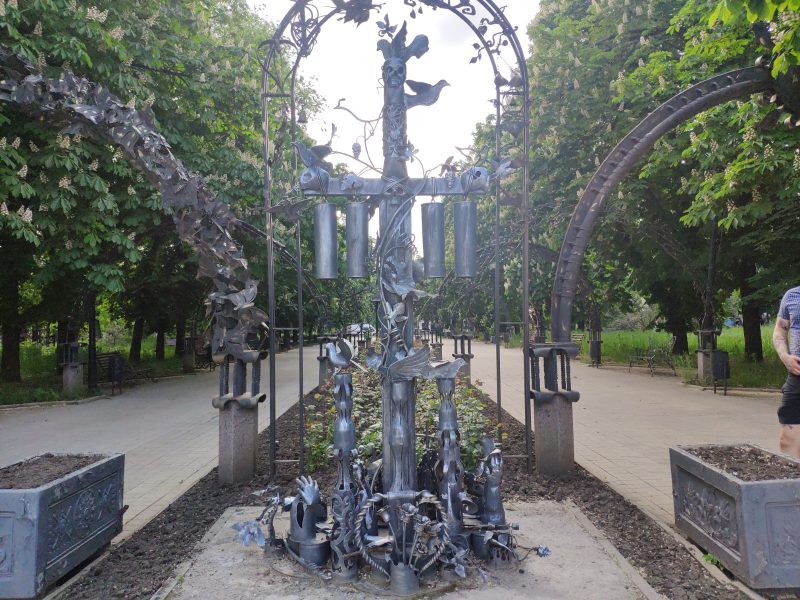
A commander in the coffee shop
The People’s Militias have gained significant experience in Donetsk after the country’s independence from Ukraine in 2014. You can occasionally see militia members in military uniforms on the streets. They named themselves “Sparta Battalion.” At the coffee shop we visit every morning, we came across a high-ranking commander from the Sparta Battalion. He was having his coffee before heading to the front lines. I took the opportunity to ask him some questions. I asked how the current situation was, and he said “The Ukrainians have increased their attacks and are using more tanks, but they have not yet broken through our defense.” After his coffee, he went off to the front lines as if he was going to work.
Local people have defended Donetsk for the past nine years. While Russian troops came here to support with the special military operation, local militia forces still primarily protect the city. They assert that they fight with even greater motivation than soldiers coming from any part of Russia.







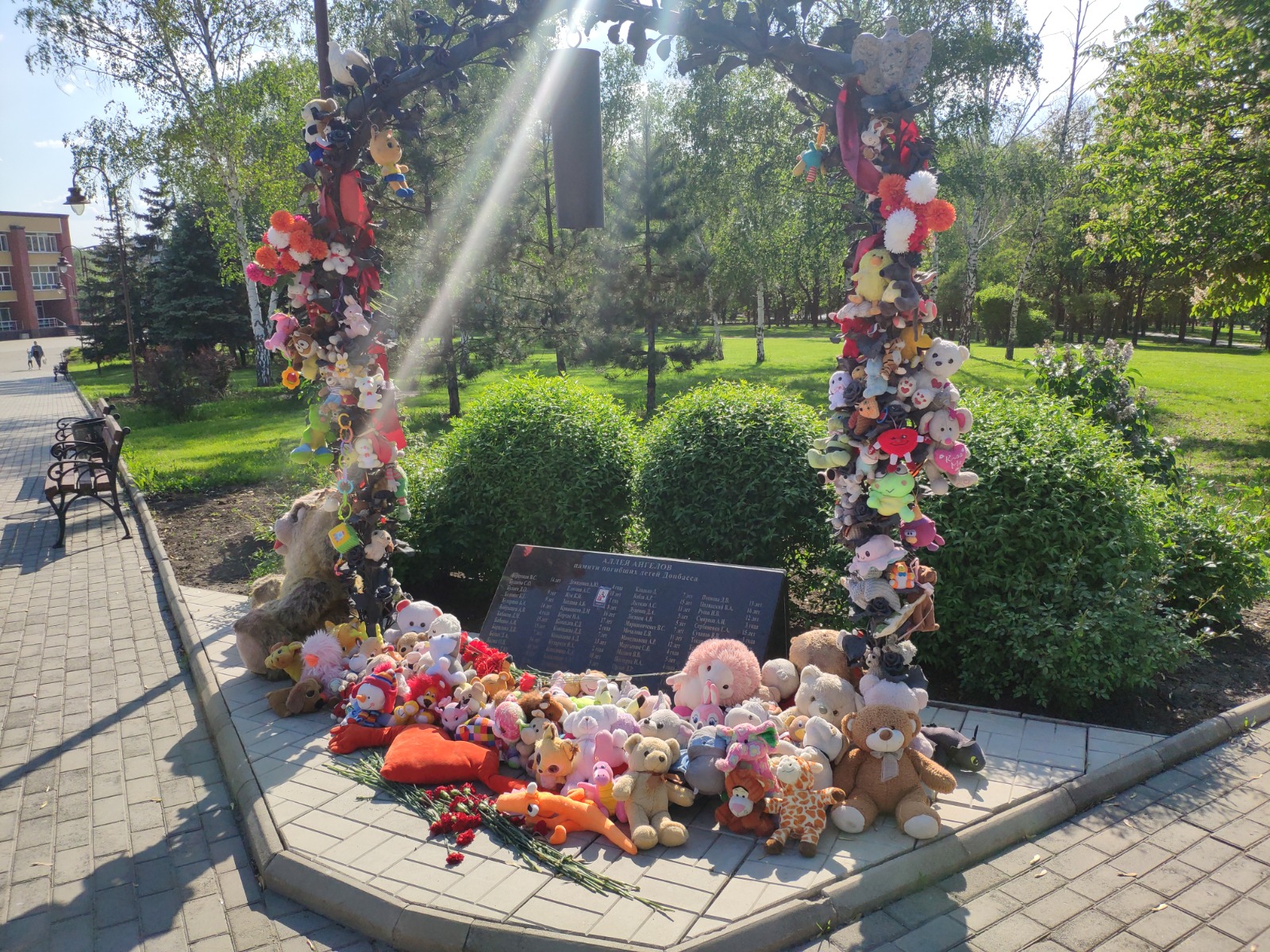
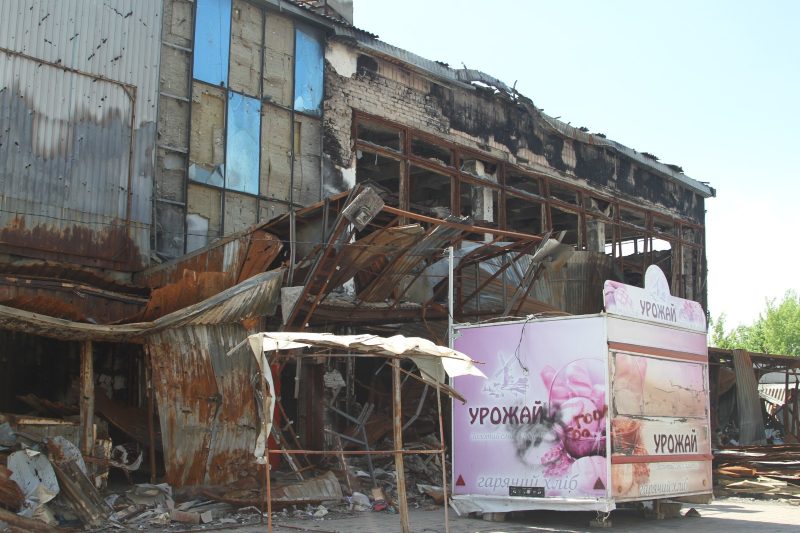
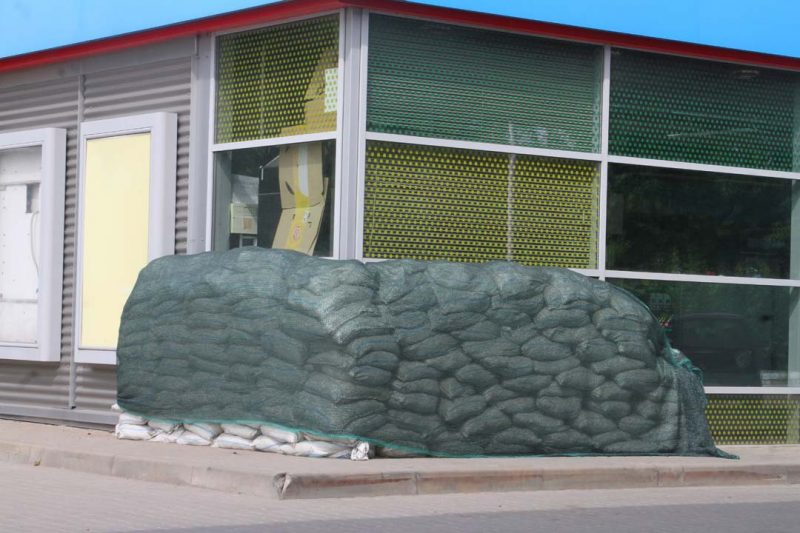









Leave a Reply